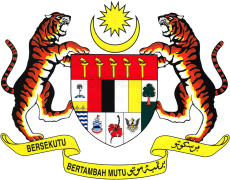What does the Malaysia-Australia Free Trade Agreement (MAFTA) cover?
The MAFTA is a comprehensive Agreement covering Trade in Goods, Services, Investment and Economic Cooperation.
What are the benefits that can be derived from the MAFTA?
Benefits accruing from the MAFTA are many-fold, as it contains disciplines across trade in goods, services, investment and economic cooperation that will lead to further liberalisation of markets by both Malaysia and Australia. The Agreement provides windows of opportunities for business communities of both countries to increase and expand the flows of trade in merchandise goods and services, investment crossflows, as well as economic cooperation in many identified fields that will help improve and upgrade these identified sectors which will lead to improved trade and investment trade flows.
Some of the specific benefits of the Agreement include:
For Trade in Goods , Australia will offer 100% tariff elimination on entry into force and Malaysian exporters have the advantage of exporting products to the Australian market without import duty. Just to give a few examples of products of export interest to Malaysia which Malaysian exporters can immediately take advantage of when the Agreement enters into force are:
- iron and steel especially the downstream products (hollow sections and pipes);
- plastic products;
- articles of apparel and clothing; and
- wood products (fibreboards).
For Trade in Services , benefits that will enjoy by Malaysian services providers include:
- For private hospital, Australia is committed to allow Malaysian companies to invest into private hospital services. Australia has never made this commitment in other FTAs. This will provide a level of certainty if Malaysians wish to invest into this business in Australia.
- In Traditional and Complementary Medicine, there will be opportunity for Malaysians to venture into Australia's expanding market, especially for the traditional Chinese medicine, homeopathy, Ayurveda and Malay traditional massage as Australia is willing to facilitate Malaysian practitioners and companies to venture into their market.
- In the field of Education and Private Higher Education Services , there will be wider opportunities for Malaysians to get access into Australia's education system in Malaysia or expand existing business. It will also provide a higher level of certainty to attract new FDIs from Australia as Malaysia is committed to allow Australian equity holdings from 70% to 100%
For Telecommunication Services , Malaysian consumers will be able to benefit from better telecommunication service and value for money with a more competitive telecommunication sector as Malaysia is committed to allow Australian equity holdings from 70% to 100% depending on the types of licences. This will also provide a higher level of certainty to attract new FDIs from Australia or expand existing business.
Under the Economic Cooperation Chapter, Malaysia will benefit from the cooperation programme involving 11 projects and the regular automotive dialogue. The scopes of projects consist of technology adoption, development of testing methods, modelling& human capital and applied research. In addition, there will also be economic cooperation in other sectors of which cover:
- Research projects and development of new technologies which will enable Creating opportunities for Malaysian and Australian component suppliers to participate in commercial exploitations of R&D
- Development of Human Capital : Australia to assist the Malaysian Automotive industry to develop capacity of trainers to deliver high quality, best practice training to individual workers within the sector including 3R (recycling, reduce and reuse) initiatives
- Tourism , Australia to assist Malaysia in the development/ implementation of a Tourism Industry accreditation scheme to improve quality of Malaysia's tourism products with a specific focus on ecotourism.
- Agriculture , Australia to assist Malaysia in the development of Phyto-sanitary
e-Certification.- On e-Commerce , Australia to assist Malaysia in the development of its new Office of the Commissioner for Personal Data Protection and in the initial stage of the implementation of its Personal Data Protection Act
In the field of Competition Policy , the Agreement also provides opportunity for Malaysia to receive assistance from Australia on implementation of competition law. Cooperation areas include sharing of experience, exchange of officials and experts and other related assistance
How is the MAFTA different from the ASEAN-Australia-New Zealand FTA?
Malaysia has removed its products (531 lines) from the sensitive list of AANZFTA. These products are mainly for iron and steel, automotive parts and components, glass and glassware, and fruits. Australia will not be a major threat since products exported from Australia will not directly compete with Malaysian products:
- duty on auto vehicles below 1800 cc eliminated over longer timeframe (2017); and
- quota volume for TRQs are based on Australia's current exports.
What are the conditions exporters need to fulfil to enjoy the preferential tariff?
In order to benefit from the preferential tariff rates under MAFTA, exporters need to fulfil the requirement on Rules of Origin (ROO) which determines the origin of a product. For a product to enjoy preferential treatment it must be wholly obtained or have undergone substantial transformation in Malaysia or Australia.
To export products to Australia, you will have to submit online applications for cost analysis and certificates of origin (COO) by logging in to www.dagangnet.com
The COO will have to be endorsed by authorised MITI officers before proceeding with your shipment
Last Updated 2015-05-29 16:37:13 by Administrator
 |
| 











